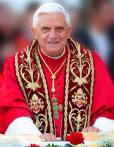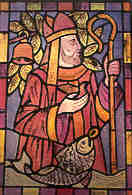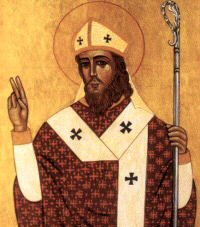Saturday, 18 January 2014
Saturday of the First week in Ordinary Time
Feast of the Church : Week of prayer for Christian unity
See commentary below or click here
Vatican Council II: "As he passed by, he saw Levi... He said to him, 'Follow me.' "
Holy Gospel of Jesus Christ according to Saint Mark 2:13-17.
Vatican Council II
Dogmatic Constitution on revelation « Dei Verbum », § 1-2
"As he passed by, he saw Levi... He said to him, 'Follow me.' "
Jesus went out along the sea. All the crowd came to him and he taught them.
As he passed by, he saw Levi, son of Alphaeus, sitting at the customs post. He said to him, "Follow me." And he got up and followed him. ...
Commentary of the day :As he passed by, he saw Levi, son of Alphaeus, sitting at the customs post. He said to him, "Follow me." And he got up and followed him. ...
Vatican Council II
Dogmatic Constitution on revelation « Dei Verbum », § 1-2
Hearing the word of God with reverence and proclaiming it with faith, the sacred synod takes its direction from these words of Saint John: "We announce to you the eternal life which dwelt with the Father and was made visible to us. What we have seen and heard we announce to you, so that you may have fellowship with us and our common fellowship be with the Father and His Son Jesus Christ" (1 Jn 1:2-3)...
In His goodness and wisdom God chose to reveal Himself and to make known to us the hidden purpose of His will (Eph 1,9) by which, through Christ, the Word made flesh, man might in the Holy Spirit have access to the Father and come to share in the divine nature (Eph 2,18; 2 Pt 1,4). Through this revelation, therefore, the invisible God (Col 1,15; 1 Tm. 1,17) out of the abundance of His love speaks to men as friends (Ex 33,11; Jn 15,14-15) and lives among them (Bar 3,38), so that He may invite and take them into fellowship with Himself.
This plan of revelation is realized by deeds and words having an inner unity: the deeds wrought by God in the history of salvation manifest and confirm the teaching and realities signified by the words, while the words proclaim the deeds and clarify the mystery contained in them. By this revelation then, the deepest truth about God and the salvation of man shines out for our sake in Christ, who is both the mediator and the fullness of all revelation.
In His goodness and wisdom God chose to reveal Himself and to make known to us the hidden purpose of His will (Eph 1,9) by which, through Christ, the Word made flesh, man might in the Holy Spirit have access to the Father and come to share in the divine nature (Eph 2,18; 2 Pt 1,4). Through this revelation, therefore, the invisible God (Col 1,15; 1 Tm. 1,17) out of the abundance of His love speaks to men as friends (Ex 33,11; Jn 15,14-15) and lives among them (Bar 3,38), so that He may invite and take them into fellowship with Himself.
This plan of revelation is realized by deeds and words having an inner unity: the deeds wrought by God in the history of salvation manifest and confirm the teaching and realities signified by the words, while the words proclaim the deeds and clarify the mystery contained in them. By this revelation then, the deepest truth about God and the salvation of man shines out for our sake in Christ, who is both the mediator and the fullness of all revelation.





.jpg)











